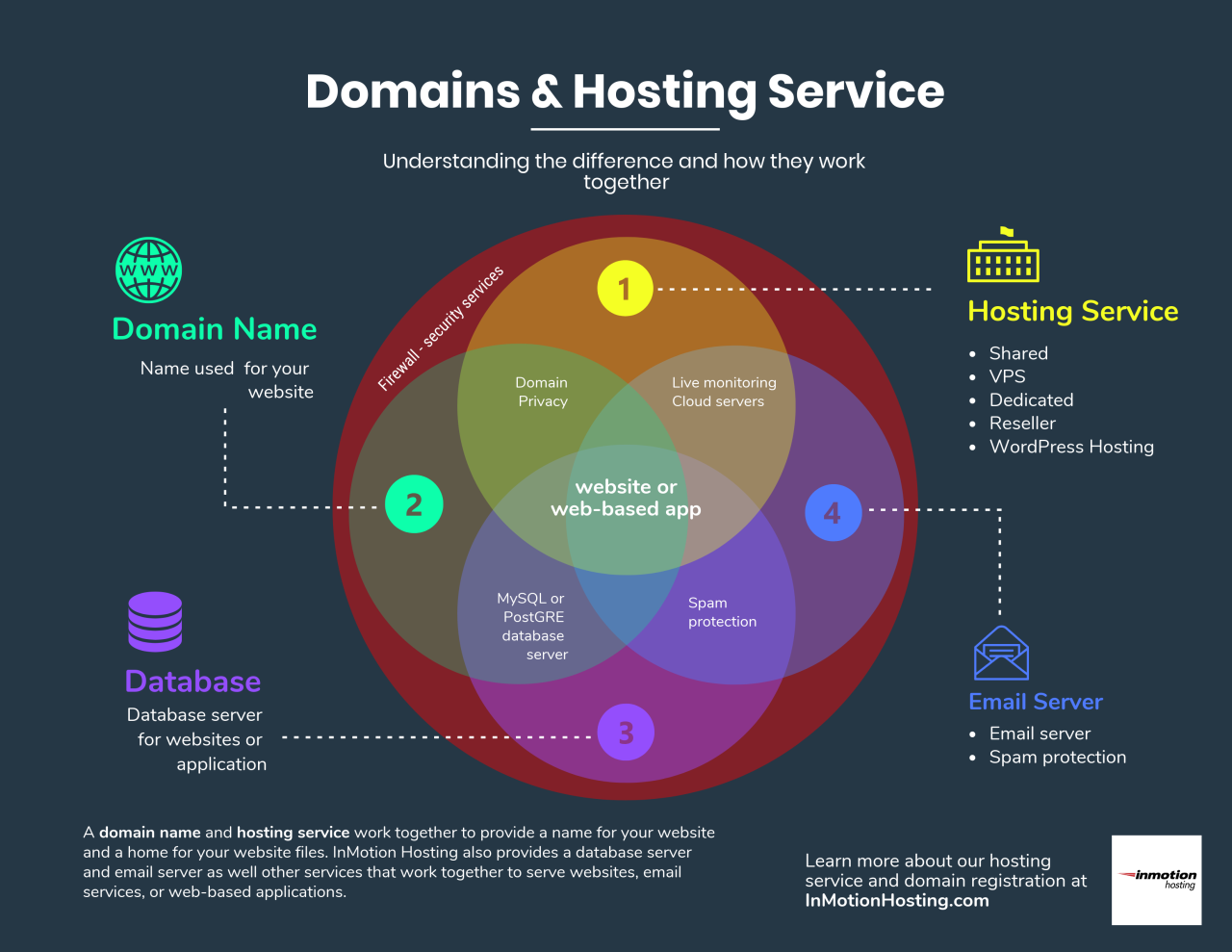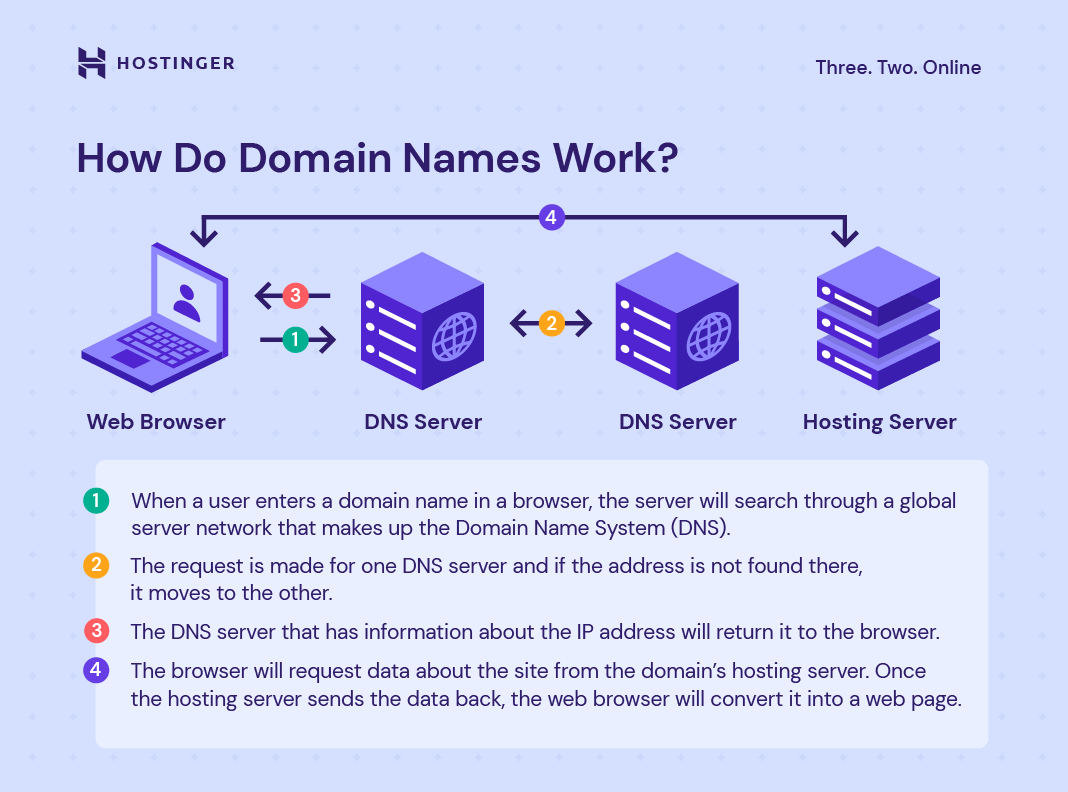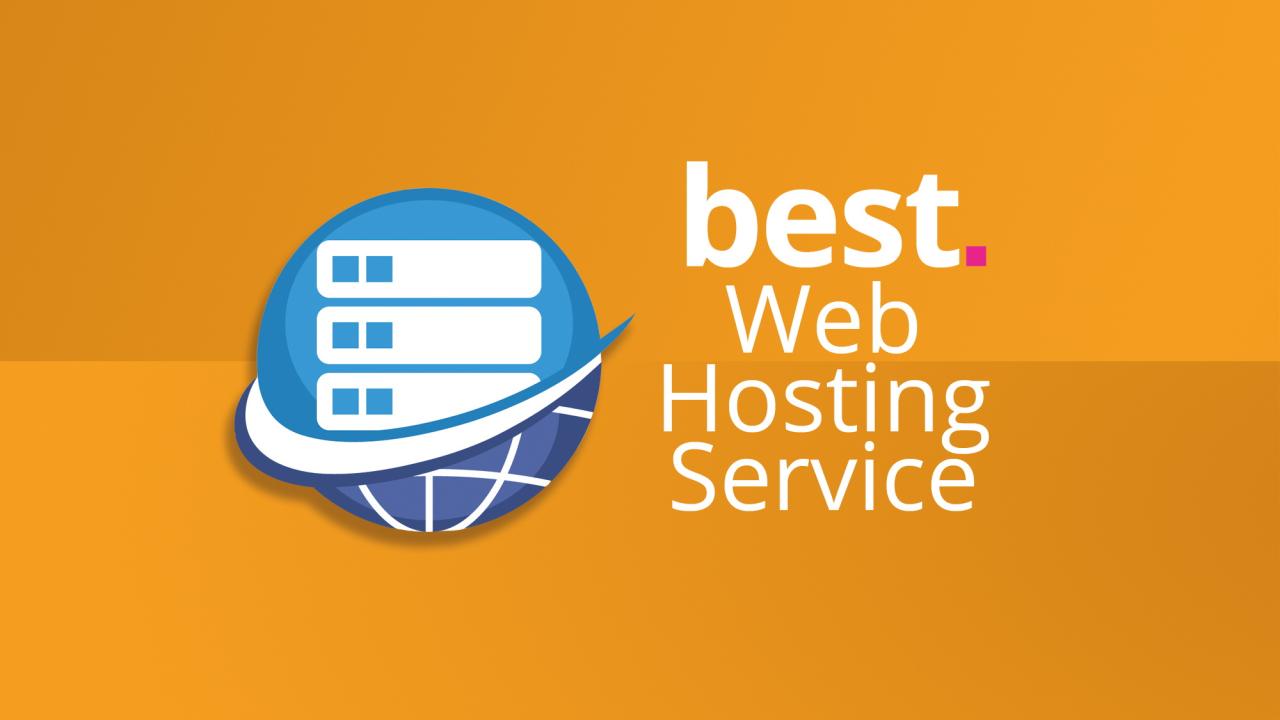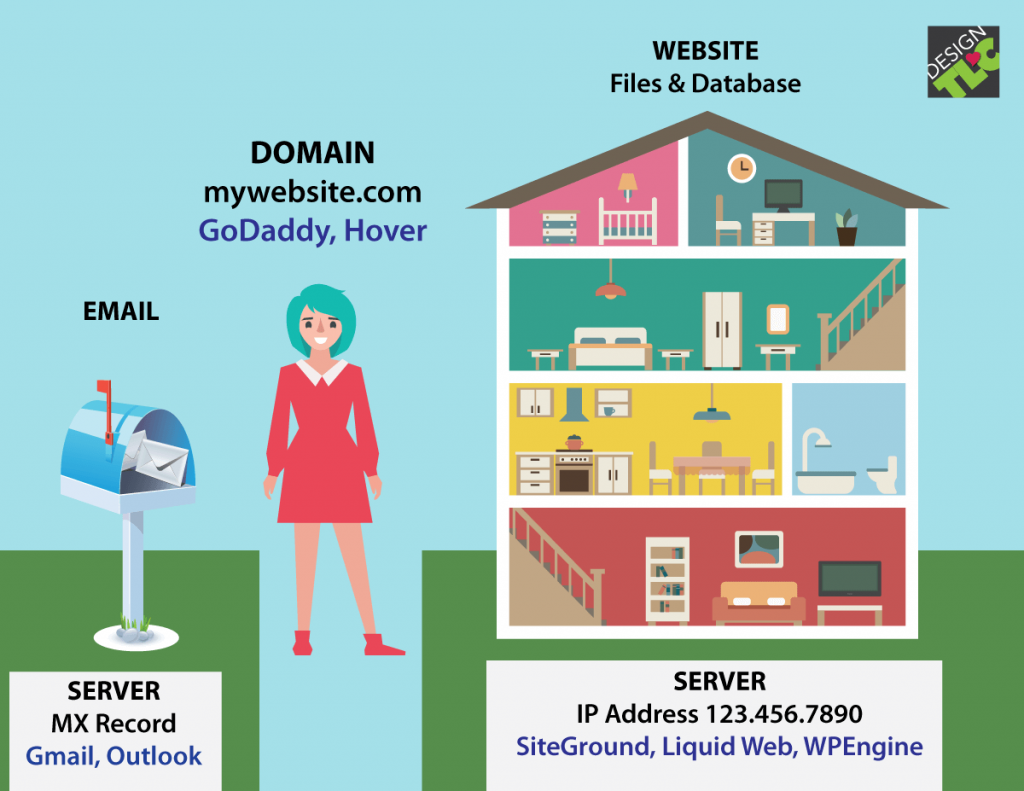Domain name and email hosting are the cornerstones of your online presence, acting as your digital address and communication hub. Choosing the right domain name and email hosting service is crucial for establishing a professional brand and effectively connecting with your audience.
This comprehensive guide explores the ins and outs of domain name and email hosting, covering everything from selecting a memorable domain name to securing reliable email services. We’ll delve into the importance of email security, explore email marketing strategies, and provide practical tips for managing your domain and email accounts effectively.
Integrating Domain Names and Email Hosting
Connecting a domain name to an email hosting service is essential for businesses and individuals who want to establish a professional online presence. This process involves linking your domain name to the email servers of your hosting provider, allowing emails sent to your domain to be delivered to the intended recipients.
Connecting a Domain Name to Email Hosting
The process of connecting a domain name to an email hosting service involves updating the DNS records associated with your domain. DNS records are like a directory that tells the internet how to find your website and email servers.
- MX Records: MX records are crucial for email routing. They specify the mail exchange servers responsible for receiving and delivering emails to your domain. When someone sends an email to your domain, the internet uses the MX records to determine the correct server to deliver the email.
- CNAME Records: CNAME records, also known as Canonical Name records, are used to create aliases for your domain. For example, you can use a CNAME record to create an alias for your website, such as “www.yourdomain.com,” that points to your primary domain name, “yourdomain.com.” This can be helpful for email purposes, as you can use a CNAME record to create an alias for your email service, such as “mail.yourdomain.com,” which points to your email hosting provider’s servers.
- A Records: A records map your domain name to an IP address. While not directly involved in email routing, they play a role in ensuring that your website and email servers are accessible. When someone visits your website or sends an email to your domain, their device uses the A record to find the corresponding IP address of your server.
Configuring Email Accounts on Different Platforms
Once you have connected your domain name to your email hosting service, you can configure email accounts on different platforms. The specific steps may vary depending on the email platform you choose, but the general process involves creating an account, setting up email settings, and configuring your email client.
- Outlook: To configure an email account in Outlook, you will need to provide your email address, password, and server settings. These settings are usually provided by your email hosting provider. Once you have entered the required information, Outlook will connect to your email server and allow you to access your emails.
- Gmail: Configuring an email account in Gmail is similar to Outlook. You will need to provide your email address, password, and server settings. However, Gmail offers a streamlined setup process where you can simply enter your email address and password, and it will automatically detect and configure the necessary settings.
Setting Up Email Hosting for a New Website

The flowchart above illustrates the steps involved in setting up email hosting for a new website. The process typically begins with registering a domain name, followed by choosing an email hosting provider. You then need to connect your domain name to the email hosting service by updating the DNS records, and finally, you can configure email accounts on different platforms.
Choosing the Right Domain Name and Email Hosting Provider

Selecting the right domain name registrar and email hosting service is crucial for establishing a professional online presence. These services are the foundation for your website and communication, so making informed decisions is essential.
Key Factors to Consider
Choosing the right domain name registrar and email hosting service involves evaluating several factors to ensure a reliable and cost-effective solution. These factors are crucial for establishing a robust online presence and facilitating seamless communication.
- Domain Name Availability and Pricing: Check the availability of your desired domain name and compare prices across different registrars. Consider factors such as renewal fees, domain privacy protection, and the availability of premium domains.
- Email Hosting Features and Reliability: Evaluate email hosting features like storage space, spam filtering, virus protection, and email client compatibility. Ensure the provider offers reliable uptime and security measures to safeguard your data.
- Control Panel and Ease of Use: A user-friendly control panel simplifies managing your domain and email accounts. Look for intuitive interfaces that allow you to easily configure settings, access email, and manage your website.
- Customer Support and Technical Assistance: Reliable customer support is essential for resolving technical issues or addressing queries promptly. Evaluate the provider’s availability, response times, and support channels, such as live chat, email, or phone.
- Scalability and Future Growth: Consider your future needs as your website and business grow. Choose a provider that offers scalable solutions to accommodate increasing traffic, storage requirements, and email accounts.
- Security and Privacy: Data security and privacy are paramount. Select a provider with robust security measures, including SSL certificates, data encryption, and regular security updates.
Importance of Customer Support and Technical Assistance
Customer support and technical assistance play a vital role in ensuring a smooth and hassle-free experience with your domain name registrar and email hosting service. Responsive and knowledgeable support can quickly resolve issues, answer questions, and provide guidance when needed.
- Prompt Resolution of Technical Issues: Technical issues can arise unexpectedly, disrupting your website or email access. Reliable customer support ensures these problems are addressed promptly and efficiently.
- Guidance and Support for Configuration: Setting up your domain name and email accounts may require assistance, especially for beginners. Comprehensive support provides guidance and troubleshooting to ensure proper configuration.
- 24/7 Availability: Technical issues can occur at any time. 24/7 customer support ensures assistance is available around the clock, regardless of the time of day.
- Multiple Support Channels: Offer a variety of support channels, such as live chat, email, phone, and online documentation, to cater to different user preferences and situations.
Pricing Plans and Value Proposition
Domain name registrars and email hosting providers offer a range of pricing plans, each with different features and value propositions. It’s essential to compare plans carefully to determine the best fit for your needs and budget.
- Basic Plans: Basic plans typically offer essential features at an affordable price, suitable for individuals or small businesses with limited requirements.
- Premium Plans: Premium plans offer advanced features, such as increased storage space, email security enhancements, and priority customer support, suitable for businesses with higher demands.
- Customization and Flexibility: Some providers offer customizable plans that allow you to select specific features and services based on your unique requirements.
- Value for Money: Consider the overall value proposition, including features, reliability, customer support, and pricing, when evaluating different plans.
Decision-Making Framework
To choose the most suitable domain name registrar and email hosting provider, consider the following framework:
- Define Your Needs: Identify your specific requirements, such as the desired domain name, email storage space, security features, and customer support expectations.
- Research and Compare Providers: Explore different providers, compare their features, pricing plans, and customer reviews.
- Evaluate Customer Support: Assess the provider’s customer support channels, response times, and reputation.
- Consider Scalability: Choose a provider that can accommodate your future growth and changing needs.
- Make an Informed Decision: Based on your evaluation, select the provider that best aligns with your requirements and budget.
Emerging Trends in Domain Names and Email Hosting
The digital landscape is constantly evolving, and the way we manage domain names and email hosting is no exception. New technologies, user preferences, and security concerns are driving significant changes in this space.
The Rise of New Domain Name Extensions, Domain name and email hosting
The traditional .com, .net, and .org extensions are no longer the only options available. The emergence of new domain name extensions (gTLDs) has opened up a world of possibilities for businesses and individuals.
- Industry-Specific Extensions: These extensions allow businesses to create domain names that reflect their industry, such as .tech for technology companies, .shop for online stores, and .law for legal firms. This can enhance brand recognition and improve search engine optimization ().
- Geographic Extensions: Extensions like .london, .berlin, and .tokyo allow businesses to target specific geographic markets. This can be particularly useful for local businesses or businesses with a global presence.
- Personalized Extensions: Extensions like .me, .blog, and .site provide individuals and small businesses with a unique and memorable online identity.
This trend offers businesses greater flexibility and choice when choosing a domain name that reflects their brand and target audience.
The Impact of Cloud Computing on Email Hosting
Cloud computing has revolutionized email hosting services. Instead of relying on physical servers, businesses and individuals can now access email services through the internet, hosted on remote servers.
- Scalability and Flexibility: Cloud-based email hosting services are highly scalable, allowing businesses to easily adjust their storage and bandwidth needs as their email volume fluctuates. This eliminates the need for expensive hardware upgrades and provides greater flexibility.
- Cost-Effectiveness: Cloud-based services are often more cost-effective than traditional email hosting, as businesses only pay for the resources they use. This can significantly reduce operating costs.
- Improved Reliability and Security: Cloud providers invest heavily in data security and redundancy, ensuring high availability and resilience against outages. This offers greater peace of mind for businesses and individuals.
Cloud-based email hosting is becoming increasingly popular, offering businesses and individuals a more affordable, scalable, and secure solution.
Emerging Technologies in Email Security and Privacy
Email security and privacy are paramount in today’s digital world. Emerging technologies are constantly being developed to protect users from phishing attacks, malware, and data breaches.
- End-to-End Encryption: This technology encrypts emails at the sender’s end and decrypts them only at the recipient’s end, ensuring that the content remains confidential throughout its journey. Examples include ProtonMail and Tutanota.
- Domain-Based Message Authentication, Reporting, and Conformance (DMARC): DMARC is an email authentication protocol that helps prevent spoofing and phishing attacks by verifying the sender’s identity and domain. This enhances email security and protects businesses and individuals from fraudulent emails.
- Artificial Intelligence (AI) and Machine Learning (ML): AI and ML are being used to detect and block spam, phishing attacks, and other malicious emails. These technologies can analyze email content and sender behavior to identify suspicious patterns and prevent unauthorized access to sensitive information.
These advancements are crucial for maintaining the integrity and security of email communication, ensuring that users can trust the emails they receive.
Case Studies and Real-World Examples: Domain Name And Email Hosting
Domain names and email hosting are essential tools for any business looking to establish a strong online presence. These elements play a crucial role in shaping brand identity, facilitating communication, and driving customer engagement. By exploring real-world examples and case studies, we can gain valuable insights into the transformative impact of domain names and email hosting on businesses across diverse industries.
Impact of Domain Names and Email Hosting on Different Industries
Domain names and email hosting have significantly impacted various industries, enabling businesses to connect with their target audience, enhance brand recognition, and drive sales. Here are some examples:
- E-commerce: Businesses in the e-commerce sector heavily rely on domain names and email hosting to create a professional online presence, manage customer interactions, and facilitate secure online transactions. For example, Amazon’s domain name “amazon.com” is synonymous with online shopping, and their email hosting infrastructure allows them to manage millions of customer inquiries efficiently.
- Healthcare: Healthcare providers use domain names and email hosting to establish trust and credibility with patients. Secure email platforms allow them to share confidential medical information, schedule appointments, and provide personalized care. For example, Mayo Clinic’s website and email service reflect their commitment to patient privacy and security.
- Education: Educational institutions utilize domain names and email hosting to create online learning platforms, manage student communication, and disseminate important information. For instance, Harvard University’s domain name “harvard.edu” is a globally recognized symbol of academic excellence, and their email system allows them to maintain effective communication with students, faculty, and alumni.
- Technology: Technology companies heavily rely on domain names and email hosting to showcase their products and services, manage customer support inquiries, and engage with the tech community. For example, Google’s domain name “google.com” is synonymous with internet search and its email service, Gmail, is used by billions of people worldwide.
Innovative Uses of Domain Names and Email Hosting
Domain names and email hosting are not limited to traditional uses; they can be leveraged in innovative ways for marketing and communication purposes.
- Personalized Email Marketing: Businesses can utilize email hosting platforms to personalize email campaigns based on customer preferences, purchase history, and demographics. This targeted approach can increase engagement and conversion rates.
- Branded Domain Names for Specific Campaigns: Creating unique domain names for specific marketing campaigns allows businesses to track their performance and target specific audiences. For example, a company launching a new product line could create a separate domain name for the campaign to monitor its effectiveness.
- Domain Name Auctions: Businesses can participate in domain name auctions to acquire valuable domain names that align with their brand identity or target market. This strategy can be particularly effective for companies looking to expand into new markets or acquire competitive domain names.
- Domain Name Portfolios: Businesses can create domain name portfolios to protect their brand and prevent competitors from registering similar domain names. This strategy can be particularly important for companies with strong brand recognition or those operating in highly competitive industries.
Successful Domain Name and Email Hosting Strategies
| Organization | Domain Name Strategy | Email Hosting Strategy | Impact |
|---|---|---|---|
| Amazon | Acquired “amazon.com” for its brand recognition and online presence. | Uses robust email hosting infrastructure to manage customer inquiries, order confirmations, and marketing campaigns. | Increased sales, enhanced customer experience, and established a strong brand identity. |
| Airbnb | Created a unique domain name “airbnb.com” that reflects its business model and target audience. | Leverages email hosting to send personalized communication to hosts and guests, facilitating bookings and providing customer support. | Increased user engagement, improved customer satisfaction, and fostered a strong community. |
| Netflix | Acquired “netflix.com” for its streaming service, establishing a clear and memorable brand identity. | Uses email hosting to send personalized recommendations, notify users of new releases, and provide customer support. | Enhanced user experience, increased subscriber engagement, and driven growth in streaming subscriptions. |
FAQs and Troubleshooting
Navigating the world of domain names and email hosting can sometimes feel like a maze. This section aims to address some common questions and provide practical solutions to help you overcome potential roadblocks.
Domain Name Registration
Understanding the process of registering a domain name is crucial. Here are some key points to consider:
- What are the different domain name extensions, and which one should I choose? Domain name extensions, such as .com, .net, .org, and country-specific extensions like .in (India), .uk (United Kingdom), and .de (Germany), indicate the purpose or origin of your website. Choosing the right extension depends on your website’s target audience and branding strategy. For instance, .com is a popular choice for commercial websites, while .org is often used by non-profit organizations.
- How long does it take to register a domain name? The domain name registration process is typically completed within a few minutes. However, it can take up to 24 hours for the domain name to become active and accessible globally.
- Can I register a domain name that is already taken? No, you cannot register a domain name that is already registered by someone else. If the desired domain name is already taken, you can consider alternative options, such as using a different domain extension or incorporating s or variations in your domain name.
- What happens if I forget to renew my domain name? If you fail to renew your domain name before its expiration date, it will become available for registration by others. To avoid losing your domain name, ensure you set up automatic renewal or receive timely renewal reminders.
Email Account Setup
Setting up email accounts is a straightforward process, but some challenges may arise. This section provides insights into common issues and their solutions:
- How do I create email accounts with my domain name? To create email accounts with your domain name, you need to choose an email hosting provider and configure your domain name settings to point to their servers. Most hosting providers offer easy-to-follow instructions and support for setting up email accounts.
- What are the different types of email hosting? There are several email hosting options available, including web hosting with email, dedicated email hosting, and cloud-based email services. Choosing the right option depends on your specific needs and budget.
- What are the advantages of using a professional email address with my domain name? Using a professional email address with your domain name enhances your brand image, builds trust with clients and partners, and provides a more professional look for your business communications.
- How do I configure email settings for my domain name? Configuring email settings involves updating DNS records (Domain Name System) to direct email traffic to your chosen email hosting provider’s servers. The specific steps may vary depending on your domain registrar and email hosting provider.
Troubleshooting Email Delivery Issues
Email delivery problems can be frustrating. This section provides guidance on identifying and resolving common issues:
- Why are my emails not being delivered? Email delivery problems can be caused by various factors, including incorrect email settings, spam filters, server issues, or network problems. To troubleshoot delivery issues, check your email settings, verify your DNS records, and contact your email hosting provider for support.
- How can I prevent my emails from being flagged as spam? To avoid your emails being marked as spam, ensure your email content is legitimate, avoid using excessive exclamation points or all-caps, and make sure your email signature is professional and informative.
- What are some common email delivery errors, and how can I resolve them? Some common email delivery errors include “bounce messages,” “undeliverable messages,” and “spam reports.” Understanding the cause of these errors is crucial for addressing them effectively. Contact your email hosting provider or consult online resources for specific error codes and troubleshooting steps.
Resolving Common Domain Name and Email Hosting Challenges
Facing difficulties with domain names or email hosting is common. This section offers practical solutions:
- How do I change my domain name registrar? Transferring your domain name to a new registrar can be done by following the instructions provided by both the current and new registrar. Ensure you have the authorization code (also known as an EPP code) from your current registrar to initiate the transfer.
- What are the best practices for managing multiple domain names? Using a domain management platform or a reputable domain registrar that offers comprehensive management tools can streamline the process of managing multiple domain names.
- How do I recover a lost or forgotten domain name password? Most domain registrars provide password recovery options through their websites. You may need to verify your identity using your email address or other personal information.
- What are some common email hosting security risks, and how can I protect myself? Email hosting security risks include phishing attacks, malware infections, and data breaches. Implementing strong passwords, enabling two-factor authentication, and regularly updating your software are essential security measures.
Final Summary

Navigating the world of domain names and email hosting can seem daunting, but with the right information and a strategic approach, you can establish a robust online presence that supports your goals. By understanding the key concepts, exploring available options, and prioritizing security and privacy, you can unlock the power of domain name and email hosting to build a successful and impactful online identity.




